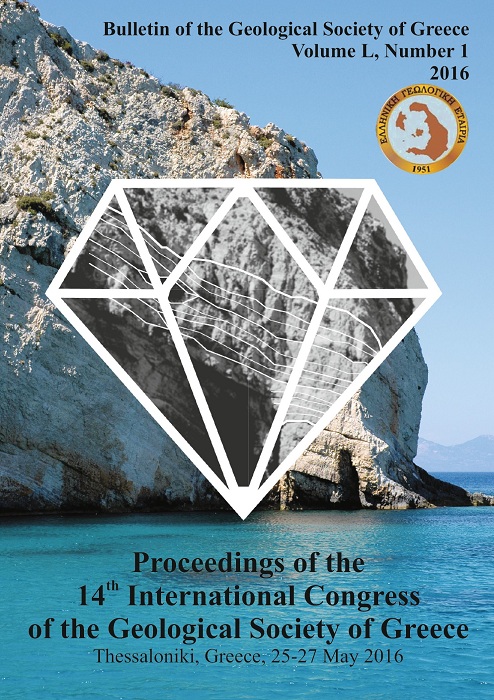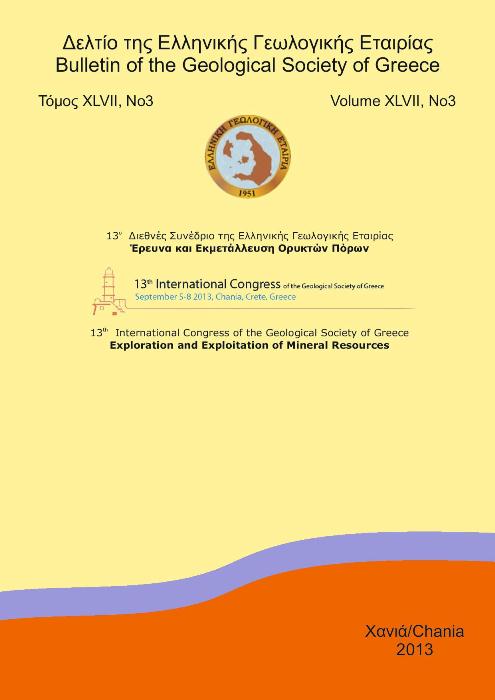BAUXITE RESOURCE EXPLOITATION IN GREECE VS SUSTAINABILITY
Abstract
In the central part of Greece bauxite ore deposits are systematically exploited since more than fifty years, initially by a French industrial group and since few years by a Greek investment group. This “economical” activity uses the non renewable mineral resources of bauxite, non renewable energy sources, as well as significant amount of water and it exports to the environment pollutants and
byproducts. CO2, NOx, F, PAHs are diffused to the atmosphere, polluting the soil of the adjacent area. Big amount of red mud is deviated to the sea, covering an extended shelf area and parts of deeper marine areas. The aim of this work is to evaluate this “economic” activity using principles of the sustainability science. In its broadest definition, sustainability refers to the ability of a society to continue functioning into the future without being forced into decline through the exhaustion or overloading of key resources.
Article Details
- How to Cite
-
Anagnostou, C. (2010). BAUXITE RESOURCE EXPLOITATION IN GREECE VS SUSTAINABILITY. Bulletin of the Geological Society of Greece, 43(5), 2426–2436. https://doi.org/10.12681/bgsg.11644
- Section
- Industrial Minerals and Rocks

This work is licensed under a Creative Commons Attribution-NonCommercial 4.0 International License.
Authors who publish with this journal agree to the following terms:
Authors retain copyright and grant the journal right of first publication with the work simultaneously licensed under a Creative Commons Attribution Non-Commercial License that allows others to share the work with an acknowledgement of the work's authorship and initial publication in this journal.
Authors are able to enter into separate, additional contractual arrangements for the non-exclusive distribution of the journal's published version of the work (e.g. post it to an institutional repository or publish it in a book), with an acknowledgement of its initial publication in this journal. Authors are permitted and encouraged to post their work online (preferably in institutional repositories or on their website) prior to and during the submission process, as it can lead to productive exchanges, as well as earlier and greater citation of published work.





